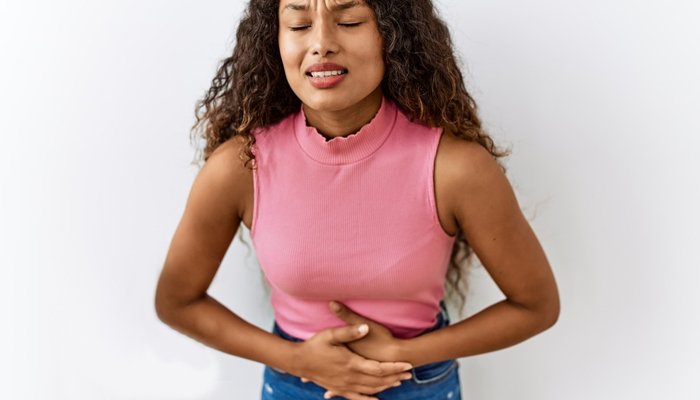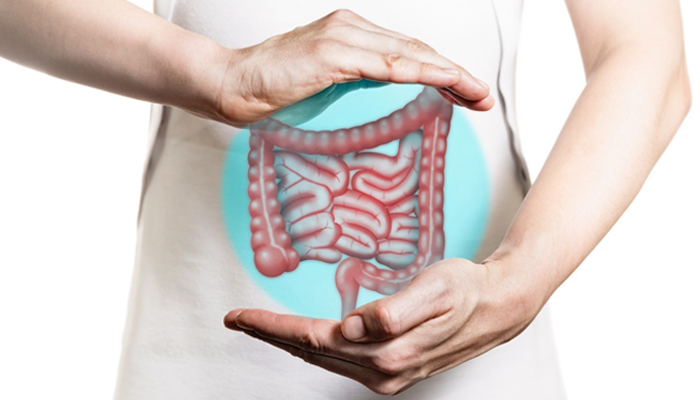
Constipation is a condition characterized by a decrease in the frequency of stools, generally associated with difficulty in evacuating them. A distinction must be made between temporary constipation on the one hand and chronic constipation on the other. Constipation is due to an accumulation of stools in the colon and rectum. The food remains of which they are composed struggle to progress towards the rectum and the water they contain is absorbed by the colon. The stools therefore become harder to evacuate.
We speak of constipation when the frequency of stool elimination is reduced to less than three times a week. There are several causes for this phenomenon as well as factors that promote constipation. It can develop according to different degrees of severity and sometimes lead to complications. The management of constipation and diagnosis by a doctor makes it possible to adapt the treatment according to each situation. Solutions exist to prevent constipation and effectively relieve its symptoms. We will therefore review these different points to provide you with as much information as possible concerning constipation, its causes and the means of remedying it.

Causes and factors contributing to constipation
Diet and lifestyle
Constipation, whether occasional or chronic, is generally linked to diet and/or lifestyle. Indeed, an unbalanced diet low in fiber, insufficient consumption of beverages or lack of physical exercise are the most frequently implicated elements in cases of constipation. Specific circumstances in terms of lifestyle or a change in daily habits can also lead to temporary constipation. In women, certain periods of the menstrual cycle, pregnancy or menopause can be responsible for occasional and temporary constipation. Travel, stress, prolonged immobilization or even hospitalization are also factors that promote constipation because they can slow down the digestion process and disrupt the elimination of stools. Finally, note that a sedentary lifestyle, particularly in the elderly or people with reduced mobility, increases the risk of constipation.
Psychological factors
In some cases, constipation can be the result of a kind of psychological blockage that induces a refusal to respond to the physiological need to go to the toilet. The fact of retaining stools in the digestive system can be linked to the presence of hemorrhoids or anal fissures that make the release of stools painful. The person with this type of disorder then tries to reduce their aggravation, which can go as far as constipation.
Taking certain medications and certain illnesses
In some cases of constipation, medications or diseases are responsible. Prolonged use of certain medications can have the side effect of constipation. This is the case, for example, with certain antitussive medications, certain painkillers and antidepressants, or medications used to combat gastric acidity. Certain diseases can also cause constipation. Examples include eating disorders (EDs), particularly anorexia, neurological diseases such as Parkinson’s disease, hypothyroidism, or hypercalcemia. Pelvic floor abnormalities (prolapse) and sphincter disorders can also cause constipation, as can functional or constitutional transit abnormalities such as Hirschsprung’s disease.
Symptoms of constipation
Since constipation is due to a disorder located in the digestive system, its manifestations are directly visible there. Constipation is most often accompanied by feelings of discomfort in the stomach, cramps, bloating, and intestinal heaviness. The stools are harder and not very abundant and their expulsion is incomplete. In some cases, constipation can be accompanied by the emission of liquid stools called “false diarrhea”. In all cases, if the symptoms observed persist beyond six months, it is then chronic constipation and no longer occasional, which leads to a change in treatment and management.

Evolution and possible complications of constipation
If constipation is not treated and prompt action is not taken to remedy it, it can lead to complications of varying severity.
Local Complications
This type of constipation complication is mainly due to repeated efforts at the time of pushing. These can lead to hemorrhoidal flare-ups or particularly painful anal fissures. When stools are very difficult to expel, they can cause partial or complete rectal prolapse, a complication that may in some cases require surgery.
Internal complications
Other complications can arise in the event of untreated constipation and cause it to develop into more serious pathologies. Among these complications, we can cite intestinal occlusion, that is to say the cessation of the emission of gas and stools; anal incontinence, corresponding to the involuntary emission of gas or stools; urinary retention due to compression of the urinary tract by the rectum and which can develop into urinary infection; rectal ulceration; fecal impaction, that is to say the accumulation of fecal matter in the rectum.
Evolution of transient constipation
Transient constipation usually disappears within a few days when hygiene and dietary measures are taken or when the cause has been identified and eliminated. On the other hand, if left untreated, transient constipation can turn into chronic constipation and treatment may need to be adapted accordingly.

Prevention and treatment of constipation
In case of occasional or chronic constipation, there are preventive measures that, if they fail to solve the problem, can be followed by drug treatment with laxative drugs.
Change your toilet habits
This is the first reflex to have to avoid constipation. It is therefore recommended to go to the toilet at fixed times, when getting up or after meals for example, without making too much effort to push. Gradually, the body will get used to these regular times and the difficulties in going to the toilet will become less frequent. It is also advisable to go to the toilet as soon as the need arises in order to limit the risk of retention. Finally, to facilitate the expulsion of stools and encourage their progression in the anal canal, the use of a step stool can be considered. Placed at the foot of the toilet, a step stool allows you to raise your legs and be in a squatting position which facilitates the passage of stools from the colon to the rectum because the puborectal muscle is completely relaxed whereas it is only partially relaxed in the classic sitting position.
Change your diet
Diet is a very important factor to consider in case of constipation. It can prevent its onset and is a simple treatment to implement. It is recommended to start by adopting a diet rich in fiber , provided mainly by fruits, vegetables or wholemeal bread. Certain foods are particularly indicated to allow the increase in the frequency of stools and the improvement of their consistency: dried fruits such as coconut, fig or prune; whole grain products; fresh fruits and more particularly raspberries, redcurrants and rhubarb; green vegetables; soya.
To avoid bloating and digestive pain, it is advisable to gradually increase the consumption of foods rich in fiber until reaching a consumption of between 15 and 40 grams of fiber per day.
Avoiding foods that are too fatty and too sweet which weigh on the digestive system is also recommended to limit the risks of constipation.
Finally, drinking water regularly and in sufficient quantities (at least 1.5 L each day) is an additional solution to avoid constipation. If you have difficulty drinking enough water, think about the different options that allow you to consume it: pure water, soup, homemade fruit juices, herbal teas, infusions, etc.
Practice physical activity
Daily physical activity is highly recommended to prevent constipation. Being active is just as important as having a balanced diet since it helps you stay healthy, stimulates your appetite and so- called “lazy” colons. Physical activity can take the form of a sport, but also includes all the movements and activities of daily life that mobilize the body: walking, gardening, DIY, playing with children, etc. The important thing is to avoid a sedentary lifestyle as much as possible, which is a factor that promotes constipation.
Opt for natural solutions in herbal medicine
Constipation and digestive disorders can be improved with herbal medicine. In fact, certain dietary supplements in the form of tablets or drinkable solutions can relieve intestinal discomfort and bloating that often occur in cases of constipation. Plants such as black radish, peppermint, fennel, lemon balm, psyllium found in Hygiaflore flat stomach constipation and broccoli are preferred for their purifying effect on the digestive system. Plants such as rhubarb and mallow also help stimulate intestinal transit and improve the progression of stools towards the rectum. Herbal
teas and infusions composed of medicinal plants that facilitate digestion can also be consumed to prevent constipation. Certain plants are particularly recommended: sage, which stimulates digestion; milk thistle, which allows for more pleasant digestion; desmodium, rich in flavonoids that maintain the balance of the intestinal flora; artichoke, known to promote liver and digestive comfort.
